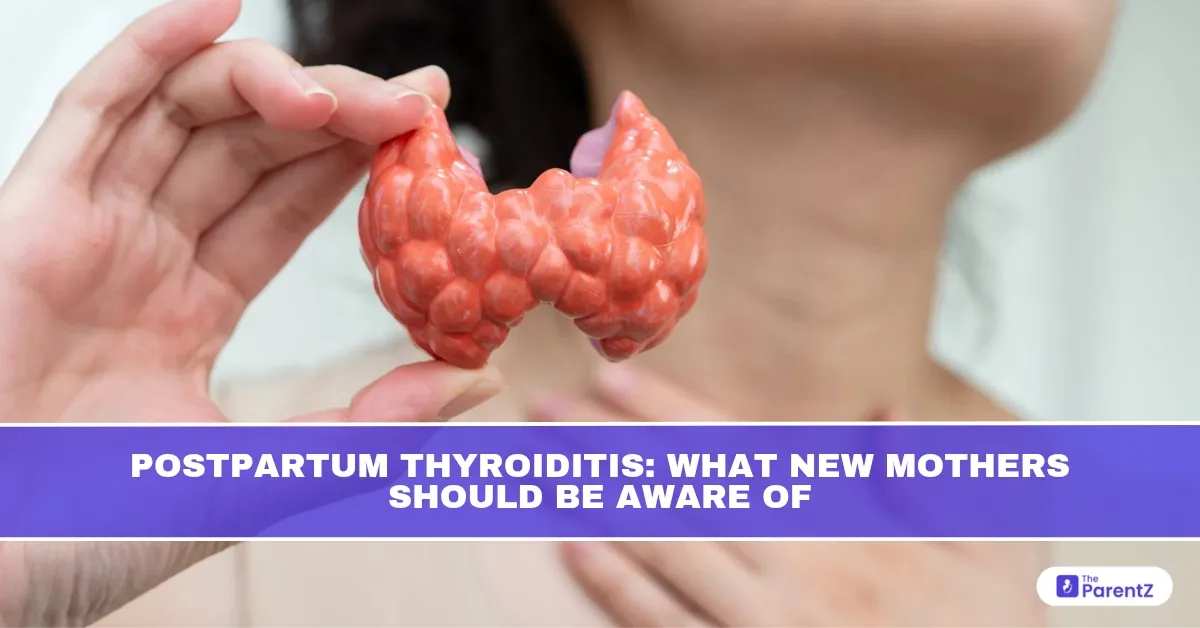This Is Something New Mothers Must Be Aware Of
Bringing new life into the world changes everything, including your body in ways you might not expect.
One condition that often flies under the radar is postpartum thyroiditis.
Even if you’re doing “everything right” as a new mother, thyroid health can silently impact your energy, emotions, and recovery.
Being aware of it means you can take quick action and protect not just your health but also how you show up for your baby and yourself.
What Is Postpartum Thyroiditis?
Postpartum thyroiditis is an inflammation of the thyroid gland that occurs within the first year after childbirth.
The thyroid, located at the base of your neck, controls your metabolism and energy levels by releasing vital hormones.
In postpartum thyroiditis, the thyroid may first become overactive (hyperthyroidism) and later under active (hypothyroidism) or sometimes go directly to an under active phase.
Many new mothers may think it’s just part of being exhausted after childbirth—but it’s not always that simple.
According to studies published on PubMed, approximately 5–10% of women experience postpartum thyroiditis, but many cases are missed or misdiagnosed.
Causes and Risk Factors
Researchers believe postpartum thyroiditis is largely an autoimmune disorder.
During pregnancy, your immune system quiets down to protect the baby. After delivery, it “wakes up”—sometimes attacking the thyroid gland.
You’re at higher risk if you:
- Have a history of thyroid disorders
- Test positive for thyroid antibodies during pregnancy
- Have type 1 diabetes or another autoimmune condition
- Had thyroid problems after a previous pregnancy
- Have a family history of thyroid or autoimmune disease
Symptoms to Watch For
The tricky thing?
Postpartum thyroiditis symptoms overlap with normal postpartum exhaustion making them easy to miss.
You might experience:
Hyperthyroid Phase (1–4 months postpartum):
- Feeling unusually anxious or irritable
- Rapid heartbeat
- Excessive sweating
- Unexplained weight loss
- Feeling overheated
- Trouble sleeping even when the baby sleeps
Hypothyroid Phase (4–8 months postpartum):
- Feeling unusually tired, even after rest
- Constipation
- Dry skin
- Feeling cold all the time
- Brain fog or memory problems
- Depression or mood swings
- Weight gain that’s hard to explain
Some women go through only one phase, others both.
And for about 20–30% of women (according to PubMed studies), the hypothyroidism becomes permanent, requiring lifelong treatment.
How Is It Diagnosed?
If you’re feeling “off” and symptoms don’t improve after a few months postpartum, ask your doctor for a thyroid function test.
A simple blood test checks:
- TSH (thyroid-stimulating hormone)
- Free T4 and sometimes T3 levels
- Thyroid antibodies if needed
Early diagnosis is key to feeling better and avoiding long-term complications.
Treatment Options
Not every woman needs treatment.
It depends on the phase and severity of symptoms:
- Hyperthyroid symptoms may just be monitored or treated with beta-blockers to manage heart rate and anxiety.
- Hypothyroid symptoms often need thyroid hormone replacement therapy (levothyroxine), either temporarily or long-term.
- Regular monitoring is important for 12 months postpartum to track changes.
Good news: Most medications prescribed for thyroid issues are safe while breastfeeding—but always confirm with your doctor.
Why It Matters for Your Health
Unchecked postpartum thyroiditis can:
- Worsen feelings of postpartum depression
- Make bonding with your baby harder
- Affect milk production
- Impact future pregnancies
- Lead to chronic thyroid disease if ignored
Recognizing and treating thyroid problems early gives you the strength to heal, enjoy your baby, and feel like yourself again.
Conclusion: Listen to Your Body
If you’re feeling more exhausted, overwhelmed, or “off” than seems normal after having a baby, trust yourself.
Postpartum thyroiditis is common, but with awareness and care, it’s absolutely manageable.
As mothers, we often put ourselves last.
But remembering that your health is the foundation of your family’s well-being can give you the courage to seek support when you need it.
Because strong, healthy mothers raise strong, healthy children, and you deserve nothing less.





Be the first one to comment on this story.